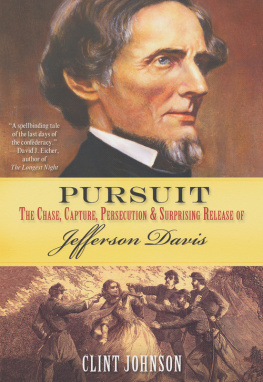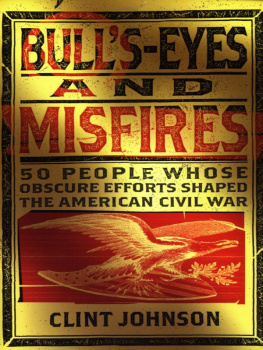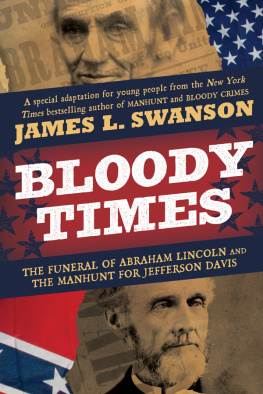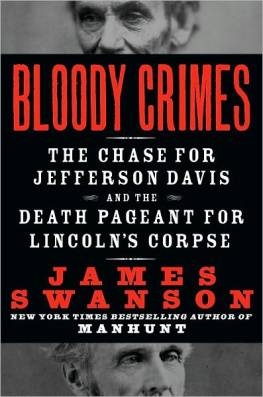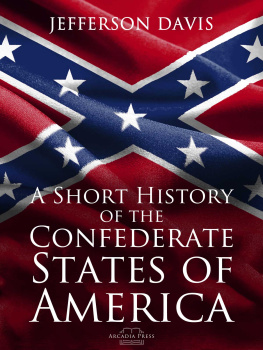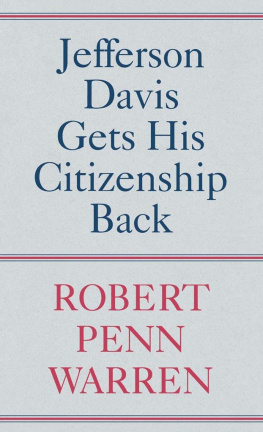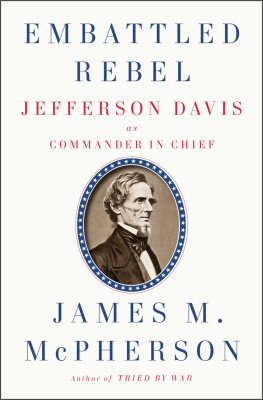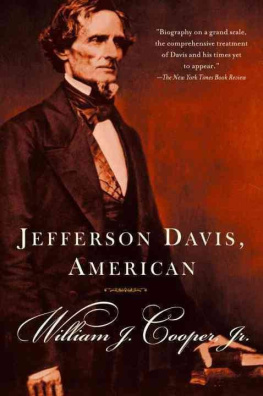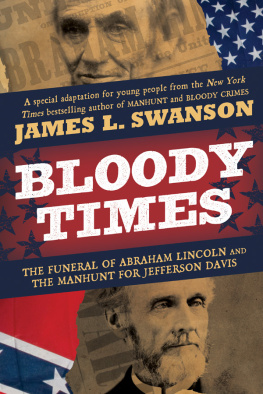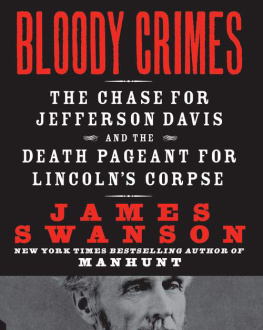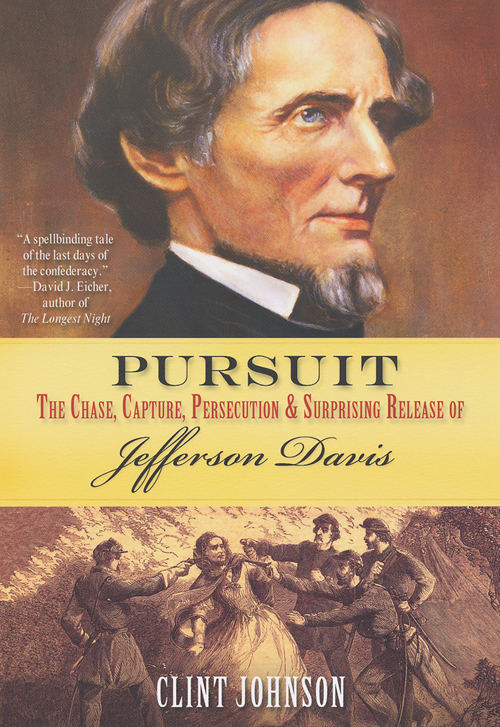Clint Johnson - Pursuit: The Chase, Capture, Persecution & Surprising Release of Jefferson Davis
Here you can read online Clint Johnson - Pursuit: The Chase, Capture, Persecution & Surprising Release of Jefferson Davis full text of the book (entire story) in english for free. Download pdf and epub, get meaning, cover and reviews about this ebook. year: 2009, publisher: Citadel Press, genre: History. Description of the work, (preface) as well as reviews are available. Best literature library LitArk.com created for fans of good reading and offers a wide selection of genres:
Romance novel
Science fiction
Adventure
Detective
Science
History
Home and family
Prose
Art
Politics
Computer
Non-fiction
Religion
Business
Children
Humor
Choose a favorite category and find really read worthwhile books. Enjoy immersion in the world of imagination, feel the emotions of the characters or learn something new for yourself, make an fascinating discovery.
- Book:Pursuit: The Chase, Capture, Persecution & Surprising Release of Jefferson Davis
- Author:
- Publisher:Citadel Press
- Genre:
- Year:2009
- Rating:5 / 5
- Favourites:Add to favourites
- Your mark:
Pursuit: The Chase, Capture, Persecution & Surprising Release of Jefferson Davis: summary, description and annotation
We offer to read an annotation, description, summary or preface (depends on what the author of the book "Pursuit: The Chase, Capture, Persecution & Surprising Release of Jefferson Davis" wrote himself). If you haven't found the necessary information about the book — write in the comments, we will try to find it.
In the only book to tell the definitive story of Confederate President Jefferson Daviss chase, capture, imprisonment, and release, journalist and Civil War writer Clint Johnson paints a riveting portrait of one of American historys most complex and enduring figures.
Riveting And Revealing. Marc Leepson, author of Desperate Engagement
In the vulnerable weeks following the end of the war and Abraham Lincolns assassination, some in President Andrew Johnsons administration burned to exact revenge against Jefferson Davis. Amid charges of conspiracy to murder Lincoln and treason against the Union, Secretary of War Edwin Stanton ordered cavalry after Davis. After a chase through North and South Carolina and Georgia, Davis was captured. The former United States senator and Mexican War hero was imprisoned for two years in Fortress Monroe, Virginia, where he was subjected to torture and humiliationyet he was never brought to trial.
Engaging. . .Vivid, Fresh, And Entertaining. Chris Hartley, author of Stuarts Tarheels
With a keen eye for period detail, as well as a Southerners insight, Johnson sheds new light on Daviss time on the run, his treatment while imprisoned, his surprising release from custody, and his later travels, in this fascinating account of a defining episode of the Civil War.
Compelling. . .an indispensable volume for any Civil War library. Daniel W. Barefoot, author of Let Us Die Like Brave Men
One Of The Most Fascinating And Overlooked Dramas In Civil War History. Rod Gragg, author of Covered With Glory
Clint Johnson: author's other books
Who wrote Pursuit: The Chase, Capture, Persecution & Surprising Release of Jefferson Davis? Find out the surname, the name of the author of the book and a list of all author's works by series.

